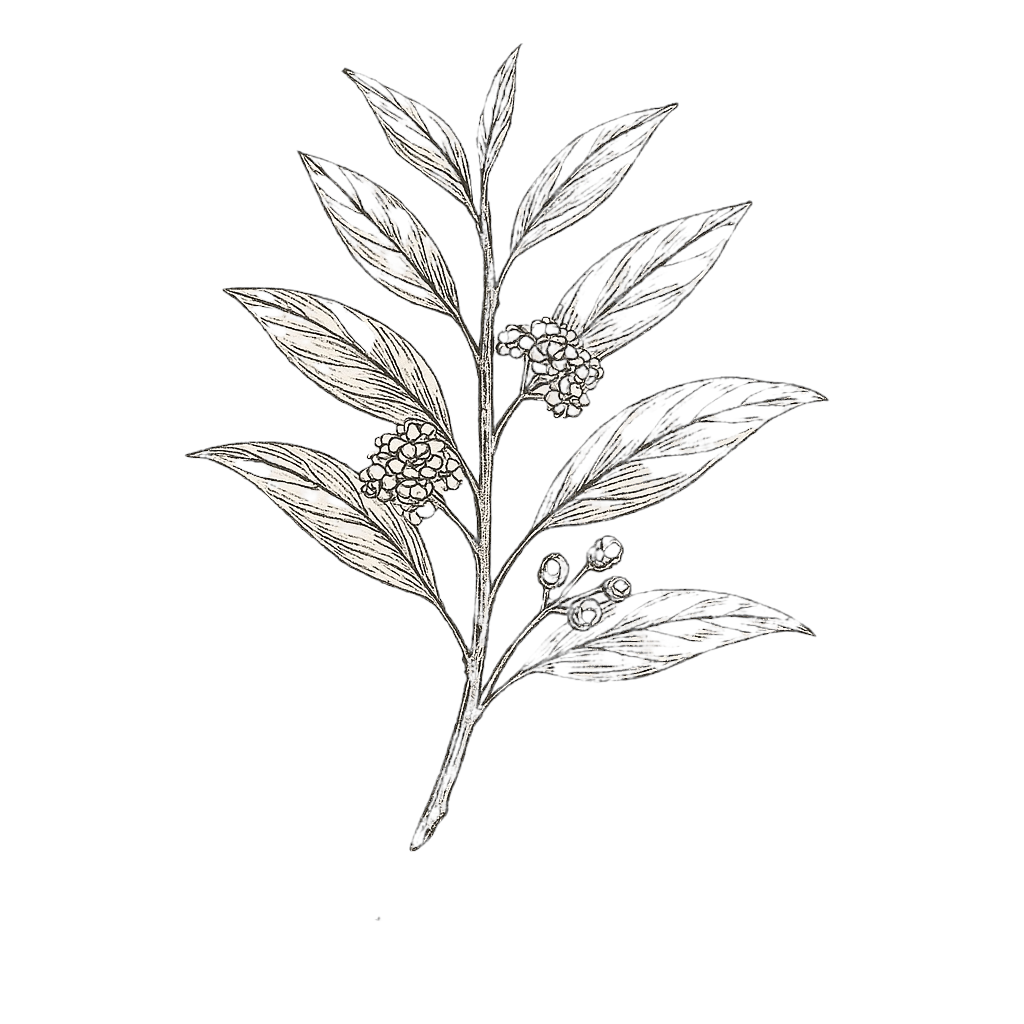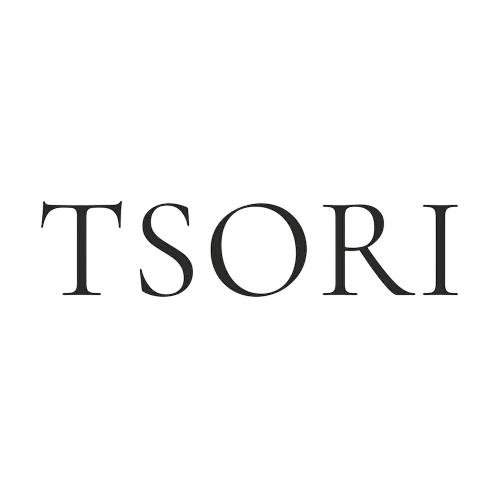
The Truth About “Fragrance-Free” (And What We Actually Use Instead)
Introduction: The Illusion of “Fragrance-Free”
If you’ve ever scanned a product labeled “fragrance-free” and breathed a sigh of relief, you’re not alone. For many of us—especially those with sensitive skin or a desire for clean beauty skincare—the promise of no added fragrance feels like safety.
But here’s the truth:
"Fragrance-free" doesn’t always mean what you think it means. And it certainly doesn’t mean your skin is free from hidden synthetics.
In fact, most so-called fragrance-free skincare products still contain masking agents, solvents, and lab-modified essential oil fractions—all designed to neutralize or suppress scent, not remove it.
At TSORI, we believe that true transparency means you know what you're smelling—and why it’s there. That’s why we never hide behind vague terminology. We don’t use synthetic fragrance. We don’t use “natural aroma.” We don’t strip our formulas of scent just to appeal to marketing trends.
Instead, we use whole-plant aromatics that nourish your skin and lift your spirit. Every scent in our line exists becauseof its benefit—not in spite of it.
Why “Fragrance-Free” Is Often Anything But
Let’s decode the three most common label tricks in the skincare industry:
1. Fragrance-Free
Usually means the formula does not have added perfume or scenting compounds. But many still contain:
- Solvents (to remove plant odors)
- Lab isolates from essential oils
- Masking agents to neutralize any residual aroma
2. Unscented
Often contains chemicals to suppress natural aromas from other ingredients, including synthetic fixatives.
3. Naturally Scented
Sounds good, but often means fragrance compounds derived from nature, then lab-altered for consistency. These can still cause skin reactions and mimic the behavior of traditional perfume.
The Bottom Line:
If a label doesn’t explicitly list what is providing the scent (and in what form), it likely contains hidden synthetics or altered natural isolates.
This is why TSORI takes a radically different approach.
What We Use Instead: Whole-Plant Aromatics
Our formulas are made with God-made ingredients—not lab-altered replicas. This means every scent in a TSORI product comes from:
- Infused whole plants (resins, petals, buds, seeds)
- CO2-extracted botanicals in their full-spectrum form
- Wild-harvested ingredients that smell exactly as they do in nature
And we use them intentionally, not just for their scent—but for their healing benefits.
We believe that what you smell should also be what heals.
Chart: Scenting Methods Compared
Here’s a side-by-side look at the three most common approaches in the skincare industry:

This chart is comparing synthetic fragrance, fragrance-free formulations (with masking agents), and TSORI’s whole-plant scenting across five criteria: Skin Irritation Risk, Transparency of Ingredients, Therapeutic Benefits, Scent Complexity, and Alignment with Natural Formulation. Whole-plant scenting scores highest in every positive category and lowest in skin irritation risk.
Personal Experience: Why I Stopped Trusting the Word “Fragrance-Free”
Before TSORI was a brand, it was a balm—one I made for my daughter’s eczema when every “natural” product failed her.
I remember flipping over bottles labeled “unscented” or “fragrance-free” and wondering why they still made her skin itch and burn. Later I learned: many of them still contained preservatives, solvents, and traces of synthetic fragrance masked under terms like “aroma” or “botanical blend.”
It wasn’t until I made my own infusion—that her skin began to heal. The balm smelled like the forest after rain. It wasn’t perfume. It was presence. Real. Pure. Alive.
That moment rewired how I think about scent.
And it shaped everything we do at TSORI.
What Lab-Altered Scents Do to the Skin
Even “natural” or “essential oil-based” fragrances can cause damage when they are:
- Isolated: Stripped of their synergistic plant compounds.
- Reconstructed: Altered for shelf-stability or uniform scent profiles.
- Used in high concentrations: Overpowering to the skin’s natural intelligence.
This often results in:
- Sensitization over time
- Skin barrier damage
- Hormonal mimicry in certain compounds
True clean beauty skincare does not borrow from perfume chemistry.
Why Whole Plants Smell Different (and Better)
When you open a bottle of TSORI, you’re not met with the punch of perfume. You’re welcomed by something more ancient, more grounded. A whisper of the wild. The trace of a forest floor after rain. The memory of pressed petals and sun-warmed seed oil.
This is what whole-plant scenting is.
Unlike synthetic fragrance—which is engineered to be uniform, bold, and long-lasting—whole-plant aromatics are alive. They shift subtly over time. They breathe on your skin. They smell like something real, because they are.
When you smell a TSORI product, you’re not inhaling a top note or lab-isolated ester.
You’re experiencing:
- A resin drawn from the bark of a healing tree
- A wildflower in bloom, suspended in golden oil
- A petal that has steeped in sunlight and softened into the formula itself
This is not a fragrance. It’s a living imprint of the earth.

The Difference You Can Feel
Whole-plant scenting isn’t about adding aroma—it’s about honoring the inherent scent of the ingredients themselves.
- It supports the skin’s healing by avoiding the harsh compounds that trigger inflammation or compromise the microbiome.
- It calms the nervous system, inviting a gentle pause—a sensory breath in your skincare routine.
- It respects the body’s sensory boundaries, never overwhelming, never lingering artificially.
A Symphony, Not a Solo
In lab-created fragrance, you smell a single-note chord: linear, sharp, and designed to overpower.
In TSORI’s whole-plant formulations, you encounter a symphony:
- The green, herbaceous opening of Calendula
- The soft, citrus lift of Litsea
- The grounding hush of Frankincense resin
- The floral trace of something blooming, not bottled
Each note is unedited, complex, and part of a greater whole—just like the plant itself.
Scent is sacred. It shouldn’t be manufactured. It should be remembered.
That’s why we never isolate scent. We let the plant carry it—intact, unfiltered, and whole. It’s our way of preserving not just skin integrity, but creation integrity.
The Role of Scent in Biblical Beauty
Scent has always been sacred.
In Scripture, we see fragrant oils used not as cosmetics, but as anointing tools—frankincense, myrrh, hyssop. These weren’t fragrances. They were consecrated compounds for healing, blessing, and protection.
At TSORI, we see scent the same way.
We don’t manufacture it—we revere it.
The Problem with “Neutral”
We often hear customers say:
“I don’t want a product that smells like anything.”
What they usually mean is:
“I don’t want something artificial, cloying, or overwhelming.”
But true neutrality isn’t scentless. It’s balanced. Grounded. Layered with the soft hum of real plants.
When you use TSORI products, you may notice a faint whiff of the forest, a warm trace of resin, a touch of herb. That’s not fragrance. That’s medicine.
Common Terms That Hide Synthetic Fragrance
Fragrance in skincare is a minefield—and most of the danger is in what’s not disclosed. The beauty industry is legally allowed to protect “fragrance” as a trade secret, meaning they can include hundreds of synthetic chemicals without listing a single one.
Here are the most common terms that sound safe—but often hide what your skin may react to:
|
Label Term |
What It Often Means |
|
Fragrance / Parfum |
A catch-all term that can legally include over 3,000 undisclosed ingredients, including phthalates, aldehydes, and skin-sensitizing compounds. |
|
Aroma / Natural Aroma |
A term often used to describe lab-isolated scent molecules originally derived from nature (e.g., limonene, linalool) but manipulated for uniformity. |
|
Essential Oil Blend |
Sounds plant-based, but may include lab-altered essential oils, isolates stripped of their natural buffers, or synthetically reassembled scent profiles. |
|
Botanical Complex |
Typically a proprietary blend, often with undisclosed fragrance components or solvent carriers—especially in products labeled as “natural” or “clean.” |
|
Unscented |
Doesn’t mean scent-free. Often includes masking agents or chemical odor suppressants to create the illusion of neutrality. |
These terms are used not just to obscure synthetic fragrance—but to preserve the illusion of “clean beauty skincare” while using ingredients that may irritate sensitive skin, disrupt hormones, or cause long-term inflammation.
If a label isn’t listing every aromatic component clearly, in INCI-compliant language, it’s not the full truth.
At TSORI, we believe your skin deserves honesty—right down to the last drop. That's why we never hide scenting agents behind vague terms. If it's aromatic, it's whole-plant. If it's on the label, it's listed transparently. If it doesn't serve your skin, it doesn't belong.
What We Choose Instead: TSORI's Scent Philosophy
Every aromatic ingredient in our formulas is:
- Whole-plant sourced
- Purpose-driven
- Low-sensory-impact
- Therapeutic—not cosmetic
Here are a few of our favorites:
- Frankincense Resin: Calms inflammation and centers the nervous system.
- Balm of Gilead: A biblical healing resin with anti-microbial and skin-repairing properties.
- Litsea Cubeba: Bright citrus that uplifts without overwhelming.
- Blue Tansy: Soothes reactive skin and carries a naturally sweet, apple-like scent.
A Note on Essential Oils
We use essential oils sparingly, and only:
- In their whole-spectrum, unmodified form
- Diluted well below sensitization thresholds
- When they provide a functional skin benefit
You will never find essential oils in our products just for scent. They’re part of a healing matrix—not an olfactory experience.
The Takeaway: Less Fragrance, More Integrity
The next time you see “fragrance-free,” ask yourself:
- What is this product actually made of?
- Are the plants allowed to speak—or are they being silenced?
- Is this silence for your safety, or for shelf appeal?
At TSORI, we don’t mute our ingredients. We let them speak—with quiet power and holy wisdom.
Conclusion: Reclaiming the Scent of Skincare
There’s a reason we’re drawn to the scent of soil after rain, fresh resin, or warm petals in oil. These aren’t just scents. They’re signals. Reminders that the body was made to commune with the earth, not defend itself against it.
TSORI’s approach to scent is different because our philosophy is different:
- We don't formulate to cover up—we formulate to reveal.
- We don't chase artificial neutrality—we embrace honest subtlety.
- We don't sell you fragrance—we give you healing.
Let your skin breathe again.
Let your senses be restored.
Let the plants speak.
